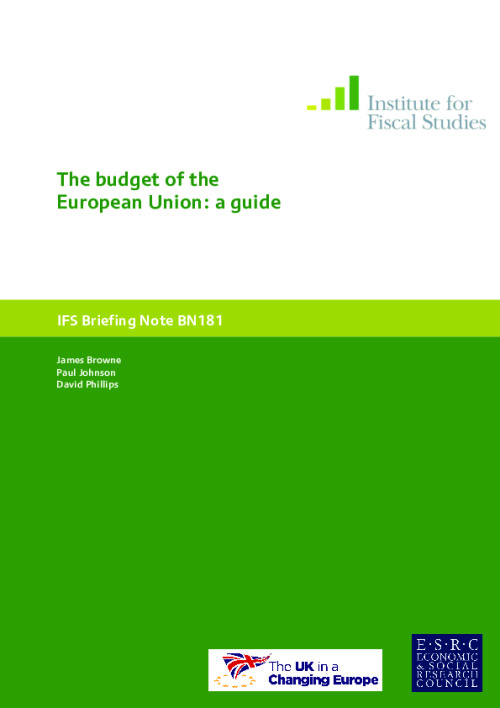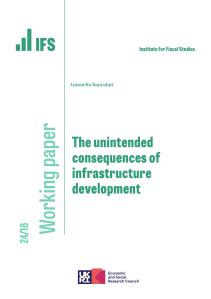On 23 June 2016, voters in the UK will be asked to decide whether they wish to remain in the European Union (EU) or leave. This decision will have profound economic implications, particularly given the importance of EU membership to trade and immigration. Leaving the EU would affect UK GDP and hence the level of tax revenues and the state of the public finances.
Membership of the EU also has a more direct impact on the UK’s public finances, since the UK is obliged to make contributions towards the EU’s budget, and benefits from spending by the EU in the UK that might otherwise have to be met by tax revenues. As is well known, the UK is a net contributor to the EU budget since the UK’s contributions to the EU budget exceed the amount that the EU spends in the UK, even after the rebate on its contribution that the UK has enjoyed since 1984. These impacts of EU membership on the public finances are easiest to calculate, but not the most important: if leaving the EU significantly increased or reduced national income, the impact on the public finances would dwarf the UK’s current overall net contribution (around £5.7 billion in 2014).
This report is the first of several that the IFS will produce in the run up to the EU referendum that will look at these public finance and budgetary issues. In it we set out the EU’s budget process, describe the EU’s different sources of revenue and items of expenditure and evaluate the rules underlying these, and compare the contributions and receipts of the 28 EU member states and their overall net positions. By bringing the information together and explaining it in a clear and concise way, we hope this ‘guide’ helps demystify the EU budget and how it works – although, as we shall see, the workings of some major parts of the budget are less than transparent.











